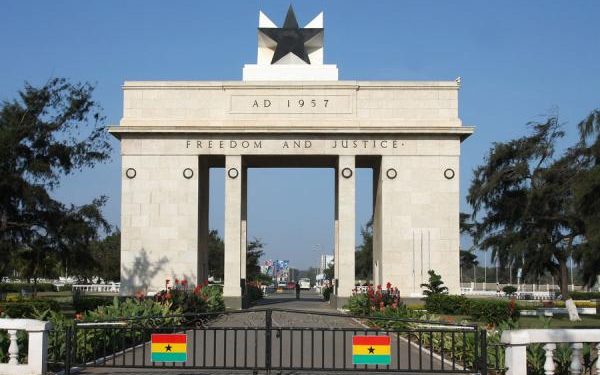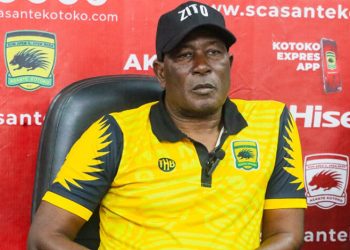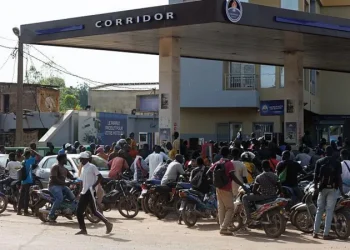“The Ghana Beyond Aid” mantra of the sitting President is a catchphrase which has generated a lot of discussions but so far no concrete and clear-cut blueprints have been put forward by government for well-meaning Ghanaians to interrogate. It was quite refreshing that on May Day the President hinted of a committee to brainstorm to fashion out a program of action towards the realisation of this lofty mantra. As a concerned citizen and stakeholder in national development by virtue of my citizenship as a Ghanaian, I have put down few thoughts as to how to realise true economic independence.
There should a concerted, relentless and ruthless war against bribery and corruption across board. If ever Ghana would move beyond aid, all Ghanaians irrespective of sex, gender, geography, class or creed must join the fight against corruption and graft. Until each Ghanaian, whether in public or private begins to live and act responsibly in relation to the canker, Ghana would continue to hemorrhage financially. The fight against corruption must start with a change in mindset, attitudes, then in actions and inactions. It should be seen as a national security issue devoid of politics and pettiness.
Self-sufficiency in agricultural production is Ghana’s number one need in our quest for a Ghana beyond aid. Judging by how much Ghana spends in importing chicken, rice and other food resources per year, we do not need a soothsayer to predict that our economy is not about to emerge from the doldrums. How do we march forward as a nation when we are unable to feed ourselves sufficiently?
Owning the economy is a nonnegotiable. Gradually and surreptitiously our dear nation is slipping through our hands helplessly. We’re increasingly losing control of our national destiny and sovereignty. We have unwittingly sold our generation and those unborn into the exploitative arms of foreigners who are gladly enslaving us at our own backyard. Wherein lies our national pride and honour when we have relinquished sovereignty to strangers? How do we tour the world in search for so-called investors and development partners to simply come and profiteer to our disadvantage while we wallow in penury and poverty? It is therefore expedient for us to encourage local investment and entrepreneurship to create wealth at home.
There is an urgent need to guarantee quality and productive education. Education should be viewed as a transformational tool for personal and national development. It should aim to transform foremost its products who are ultimately responsible for transforming the larger society. Where this great focus is missing, then its products are shortchanged automatically. It should involve the training of the mind, in morals, of the hand that helps to make one socially responsible and efficient, economically active and competent and politically relevant and responsive. Until education solves the problems and challenges of society, it is not worth pursuing.
There should be clear-cut and measurable performance index for all civilians and public servants. Job security should be firmly premised on productivity and efficiency and nothing else. We should evolve a new work ethics and culture. Workers in the public and civil service should be judged by their responsiveness to time, hard work, honesty and patriotism. We should as a people work assiduously to prosecute our national development agenda and make a pledge to build our nation from the standpoint of focus on the national interest and national interest alone.
National vision, national plan and national policy are indispensable and inextricably tied to our development agenda. We need to grow beyond the fetters of partisan politics and winner-takes-all governance. For seamless continuity and progress, all political parties must draft and glean their manifestoes and blueprints for governing this nation from the concrete and solid national vision, plan and policy going forward. We have to depoliticize all state machinery and institutions so as to ensure professionalism and corporate best practices in the civil and public service.
Rigorous industrialization of the economy locally is paramount to building a great country beyond aid. We have had to depend hopelessly on other countries for finished goods but we have failed to diversify and industrialize our own economy locally. All the talk about industrialization has largely focused on foreign direct investment in the key sectors of the economy rather than empowering the local hands to turn things around. The resultant effect has been multinational companies that profiteer and repatriate their profits to their home countries. Where there is even a talk about local partners, the challenge remains the same. Locally produced products may end up being more expensive than imported products because foreign companies have access to cheap capital and benefit from economies of scale unlike local companies and firms.
We should develop more than anything else a new culture of excellence since that is the basis of lasting success, legacies and civilizations. We necessarily have to think beyond ourselves and our generation; that is the beginning of a life of influence and legacy. As a nation, we need to collectively think excellence, work out excellence and become excellent. We need to think it, act it and become it eventually. Sound vision, good leadership and prudent management are key to institutionalizing a culture of excellence. This should be the defining characteristic of the new Ghanaian and the new African.
Austere lifestyle should be advocated for all and sundry. The culture of profligate expenditure in public life should be reversed immediately. The pomp and pageantry that attend all state functions at the national and institutional levels should be checked strictly. Waste and extravagance should be cut to the barest minimum in high and low places. I think national officers should be made to buy and fuel their own vehicles and pay their rent since they are handsomely paid by the state.
All public institutions and government appointees should be on prepaid metres for both electricity and water tariffs. This is the only way to bring down public office holders from their ivory towers and cure them of the syndrome of referring to the rest of Ghanaians as “ordinary” because they don’t occupy higher office. Building the nation from the sweat of Ghanaians means that all must contribute their quota in paying taxes, levies and tariffs. When we all sweat to put our national resources together, those exercising oversight responsibility would be more prudent and judicious in the management of the same.
The greatest threat and challenge to Ghana Beyond Aid is financial indiscipline. We are biting more than we can chew. How do solve all the problems of Ghana in four years? Free SHS, one district one factory, one constituency one million dollars, one village one dam, one district one ambulance, more regions, municipalities and districts, planting for food and jobs, free technical and vocational education, reduction in electricity tariffs, among other lofty promises. We need to draw our budget within our means. Discipline ourselves to lift ourselves sufficiently up and out of debt by paying off interests on our national debts and eventually pay off all of our national debts. Then and only then can we and should dream of a Ghana which is indeed beyond aid.
Contact the author on 0274445696, sarfo22@yahoo.com, leadershipempowermentint.org



















































